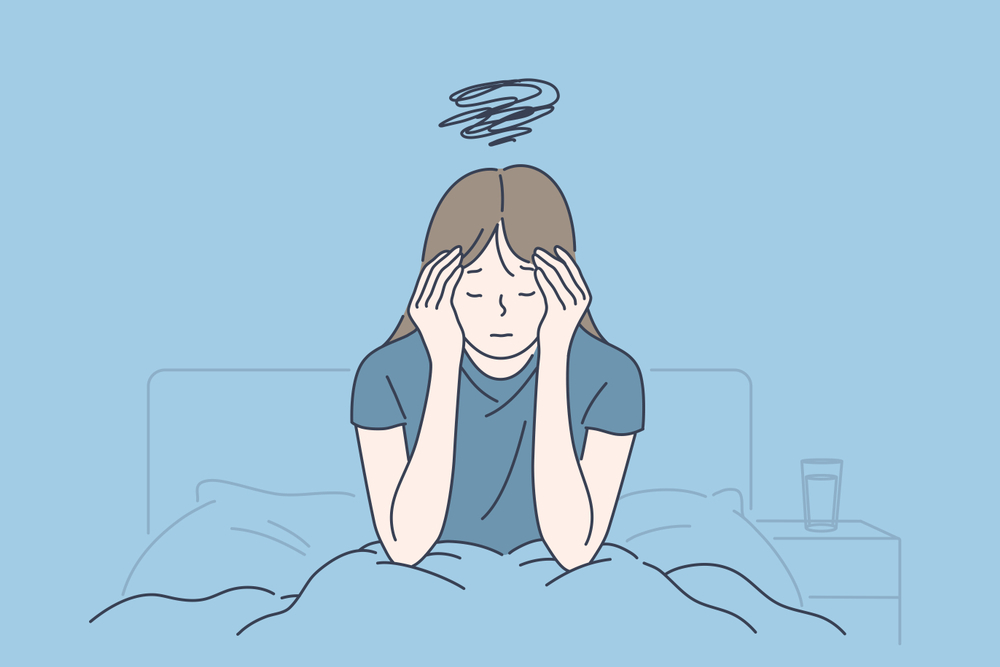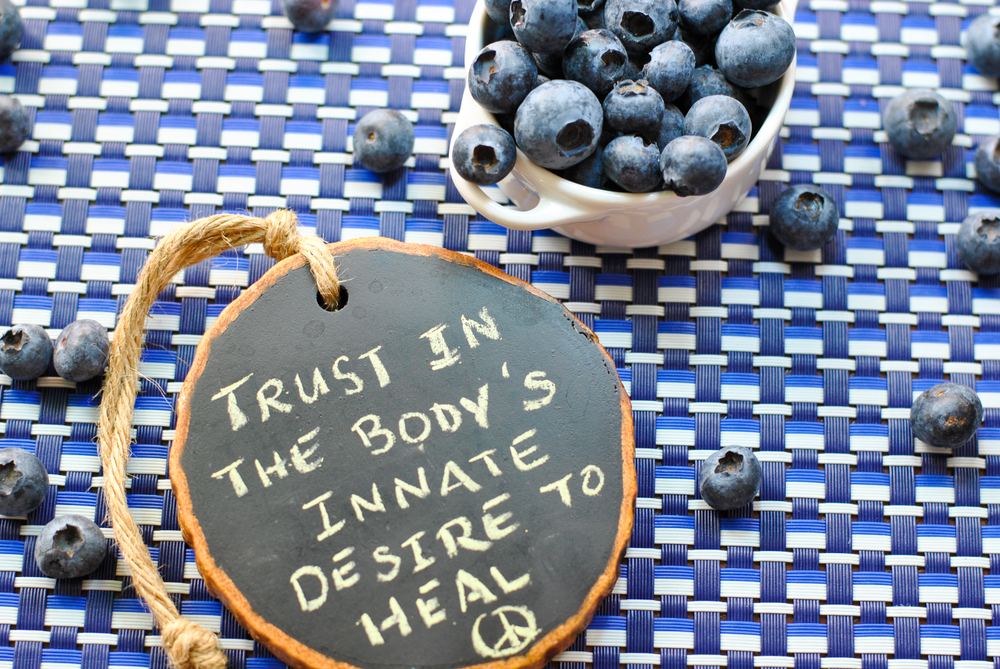Coping with Chronic Stress: A Holistic Nutrition Approach

Table of Contents
Picture this: a life free of the grip of chronic stress, where nourishing your body and mind becomes a powerful tool in your arsenal. In our fast-paced world, stress is an ever-present force, but it doesn’t have to rule our lives. By embracing a holistic approach to nutrition, we can alleviate the burden of chronic stress and reclaim our sense of serenity. This article will guide you through the principles of holistic nutrition and how it can be a transformative coping strategy for chronic stress.
Understanding Chronic Stress

Let’s start by getting a handle on what we mean by chronic stress. It’s the type of stress that seems to hang around for a long time, lingering like an unwelcome guest. Unlike the fast-hit stress we feel when we slip on ice or give a speech, chronic stress can affect our health more deeply over time. It’s important to understand its causes and how it can mess with our well-being, as well as learn to recognize the telltale signs our body waves like red flags.
Causes and Impact on Health
Imagine your body as a car alarm that won’t turn off — that’s what chronic stress can feel like. It’s often triggered by ongoing pressures from things like work, relationships, or financial worries. Unlike short-term stress, which can actually be beneficial, chronic stress wears on you day after day. It can disrupt nearly every system in your body! It might mess with your sleep, weaken your immune system, and even increase your risk of heart disease.
Not just that, but it can be a sneaky enemy, contributing to other health issues like high blood pressure, diabetes, and mental health disorders. Over time, this can lead to a cycle where stress impacts health and poor health increases stress, creating a tough situation to break free from. Your body’s “check engine” light is on for a reason, signaling it’s time to take care of yourself and ease up on the gas pedal.
Symptoms and Signs
Recognizing the signs of long-term stress is key to managing it. Your body talks to you, and when you’re under stress, it can shout in the form of headaches, fatigue, or trouble sleeping. You might feel moody, get stomach aches, or find that you’re getting sick more often. These signs are like alarm bells, telling you it’s time to slow down and pay attention to your wellness.
Other signs can be sneaky, like sudden changes in appetite or a drop in your energy levels. Some folks may deal with anxiety or depression, and others might notice muscle tension, especially in the neck and shoulders. Paying attention to these warning signals is the first step toward taking action and finding balance again. Remember, taking note of what your body and emotions are telling you isn’t just smart—it’s crucial for taking back control from stress.
The Holistic Nutrition Approach

Imagine turning to your kitchen instead of the medicine cabinet to help manage the tension that life throws your way. When we talk about the holistic nutrition approach, we’re looking at foods and eating habits that do more than just fill our stomachs. They have the power to soothe our minds and heal our bodies. This approach focuses on consuming whole foods that are packed with nutrients, balancing our meals to support all the systems in our body, and making sure our gut is healthy so our brain can be happy, too. It’s not just about eating; it’s about feeding every part of yourself the right way.
Nourishing the Body and Mind
Eating isn’t just about filling up our bellies; it’s a form of self-care that affects both our physical and mental states. When we eat with the intention of nourishing every part of ourselves, we start to notice a positive shift in how we handle stressful situations. It’s like giving your body and mind the right kind of fuel to run smoothly and efficiently.
Eating whole, nutrient-dense foods can invigorate our bodies and sharpen our minds. Foods like leafy greens, nuts, and berries are packed with vitamins and antioxidants that help fight off the negative effects of stress. Plus, when we choose these nurturing foods over processed, sugary snacks, we avoid the crash-and-burn effect on our mood and energy levels.
Balancing Hormones Through Nutrition
Imagine your body as a well-tuned orchestra, with hormones as the musicians, bringing harmony to your health. Just like a symphony can be thrown off by one out-of-tune instrument, your body can feel the same when hormones are unbalanced. Nutrition plays the maestro’s role in this orchestra, guiding the hormones back to a harmonious state.
Focusing on the right foods can help balance your hormones, which is crucial for easing stress. For example, fiber-rich foods help maintain a healthy digestive system and can regulate blood sugar levels, keeping those stress-related hormones, like cortisol, in check. Adding healthy fats from avocados or nuts can support your brain health and mood. On the flip side, foods high in refined sugars may spike your cortisol levels, cranking up stress even more. So, embracing nutrition that supports hormone balance is like fine-tuning that orchestra – it’s all about creating the perfect harmony for your body’s needs.
Foods and Nutrients for Stress Relief
Imagine finding solace in the foods you eat; it’s very much possible when you choose the right stuff! Certain vitamins and nutrients can have a huge impact on how you handle stress. For instance, Vitamin C has been shown to lower levels of cortisol, a stress hormone, while Magnesium helps to relax muscles and reduce anxiety.
Foods rich in Omega-3 fatty acids, like salmon and flaxseeds, are awesome for combating stress because they can prevent surges in stress hormones and may help protect against heart disease and depression. Also, don’t underestimate the soothing powers of complex carbohydrates; foods like whole grains release serotonin, a neurotransmitter that boosts your mood and helps you stay calm.
The Gut-Brain Connection
Have you ever had a “gut feeling” about something? That’s actually more scientific than you might think! Your gut and your brain are in constant communication, sending signals back and forth that can affect your mood and stress levels.
This link is known as the gut-brain axis, and it’s super important for managing stress. If your gut is happy, it sends good vibes to the brain, which can help you feel more relaxed. On the other hand, a troubled gut might send stress signals to the brain, which can make you feel anxious or down. So taking care of your gut by eating healthy, stress-busting foods can really help you keep your cool.
Incorporating Holistic Nutrition into Daily Life

Making healthier choices isn’t just a fad; it’s a lifestyle change that we need to tackle head-on, especially when it comes to managing ongoing stress. It’s about finding ways to sneak in those nutrient-packed foods and mindful eating habits into our everyday routine. This shift towards wholeness in our diet can bring us closer to a calmer mind and a more energized body. So, let’s dive into how we can seamlessly weave the principles of holistic nutrition into the fabric of our daily lives for a more peaceful and stress-resistant existence.
Meal Planning and Preparation
Starting your holistic nutrition journey begins at the very heart of your kitchen—meal planning and preparation. Taking the time to plan out your meals for the week can be a game-changer in managing stress. It’s not just about choosing healthy foods but also about creating a sense of order and routine. When you prep meals ahead of time, you’re less likely to reach for junk food or order takeout, which can leave you feeling sluggish and even more stressed.
Preparing meals using whole, unprocessed ingredients is key. Focus on a variety of colors and textures to ensure you’re getting a wide range of nutrients. Consider incorporating stress-busting foods like leafy greens, nuts, and seeds, which are rich in magnesium—a mineral that supports relaxation. By spending a little time each week on meal prep, you’re taking a proactive step towards a life with less stress and more joy in each bite.
Mindful Eating Practices
Imagine sitting down to a meal and really savoring every bite. That’s the essence of mindful eating—it’s about experiencing food more intensely and enjoying the flavors, textures, and aromas. To start, put down the phone and turn off the TV. Focus on your meal and nothing else. Chew slowly, and pay attention to how your food makes you feel. Not only does this make meals more enjoyable, but it can also help you tune in to your body’s hunger and fullness signals, reducing the chances of overeating.
Another part of mindful eating is gratitude. Before you eat, take a moment to appreciate the journey of your food—the work that went into growing, harvesting, and preparing it. This simple act can turn an everyday activity into a more meaningful experience. By eating mindfully, you create a calm space in your day which can help you handle stress better. Remember, it’s not just about the food on your plate but how you approach each bite.
Holistic Remedies and Supplements
Imagine a toolkit full of natural goodies that can help you fight off the tension that weighs you down. That’s what holistic remedies and supplements offer you when it comes to managing the daily grind. These little helpers can range from herbal teas that calm your nerves to vitamins that bolster your body’s stress response.
Essential to your arsenal are adaptogens, herbs like ashwagandha and rhodiola that are believed to help your body adapt to stress. Not to be overlooked is magnesium, known as the relaxation mineral. It’s crucial for many body functions, including muscle relaxation, which can be a game-changer when you’re feeling wound up. Omega-3 fatty acids, too, are a big deal because they’re linked to improved mood and brain function, making them a smart choice for keeping stress at bay.
Remember, it’s essential to consult with a healthcare provider before starting any supplement regimen, especially if you’re already taking other medications. With the right guidance and a holistic mindset, these natural remedies and supplements can be valuable allies in your journey towards tranquility.
Physical Activity and Stress Reduction

Let’s dive into an awesome part of our journey to shake off that pesky stress—getting our bodies moving! Picture yourself feeling lighter, more upbeat, and chuckling at tiny worries that used to feel like mountains. Exercise isn’t just about getting fit; it’s a secret weapon against stress, with every stretch and sprint helping to melt the tension away. Whether it’s a morning jog to kick-start the day or winding down with twilight yoga, physical activity is the ace up your sleeve for busting through stress’s clenches.
Exercise and Stress Relief
Being active is more than just a way to stay fit—it’s a powerful stress-buster. When you exercise, your body releases endorphins, those feel-good chemicals that act like natural painkillers. Not only do endorphins lift your mood, but they also help you relax and sleep better, which can be tough when you’re stressed out. It’s a kind of magic that your body knows exactly how to perform!
You don’t need to run marathons to get the benefits either. Regular, moderate exercise – like a brisk walk or a bike ride – can make a huge difference. Think of it this way: when you’re active, you’re giving your mind a break. It’s like hitting the pause button on your worries while you focus on your body’s movements. Plus, the rhythm of your steps or breath can be super meditative, and that’s pure gold for calming your mind.
Yoga and Meditation Practices
Imagine your body feeling lighter and your mind clearer after a soothing session of yoga or a peaceful meditation practice. These ancient practices are more than just exercises for flexibility or quiet contemplation; they are powerful tools in easing the tension that life often throws our way.
Yoga combines physical postures, breathing exercises, and meditation to enhance your overall health. It’s not only about bending and twisting; it’s a path to release stress and harmonize your body and mind. Practicing regularly can lead to a significant drop in cortisol levels, the main hormone associated with stress. Meanwhile, meditation allows you to foster an inner peace, training your mind to focus and redirect your thoughts which can help reduce the chaos that stress creates. Together, yoga and meditation create a synergy that can be a calming antidote to life’s pressures.
Creating a Supportive Environment

Welcome to the sanctuary of your own making! Think of building a supportive environment like crafting a cozy nest, where the chaos of the outside world can’t reach you. It’s about surrounding yourself with positivity, from the people you choose to spend time with to the personal spaces where you relax and recharge. This nurturing backdrop is crucial for unwinding and helps your holistic nutrition efforts flourish.
Social Connections and Communication
Humans are social creatures by nature; we crave connections and interactions. Building strong social connections is a critical component of a holistic nutrition strategy to overcome the weight of daily pressures. When we share our experiences and feelings with trusted friends or family members, it can relieve stress and contribute to a sense of belonging, which is essential for mental health.
Effective communication serves as a bridge between isolation and community. It’s not just about chatting over coffee or sending texts—it’s the genuine exchange of support and understanding that strengthens our inner harmony. Whether it’s joining a support group, engaging in team sports, or simply having regular family dinners, these social activities can nurture our psychological well-being, helping us to manage tense times with more resilience.
Self-Care and Relaxation Techniques
In the hustle and bustle of daily life, it’s key to carve out time for self-care and relaxation. Just like a car needs regular maintenance to run smoothly, our bodies and minds need downtime to rejuvenate. Self-care is all about taking intentional actions to cater to your physical and emotional well-being.
Regular relaxation isn’t just a luxury—it’s a critical component of managing life’s stresses. Whether it’s drawing yourself a warm bath, diving into a good book, or simply taking a few deep breaths, these practices can make a world of difference. They help lower your heart rate, reduce blood pressure, and decrease anxiety. A little bit of relaxation can go a long way in refreshing your spirit and getting you ready to tackle whatever comes next.
Crafting Your Personal Holistic Nutrition Plan
Creating a personal nutrition plan isn’t just about picking the right foods; it’s about setting up a system that supports your overall health, especially when dealing with constant stress. Think of it as a map that leads you to feel more relaxed and balanced. To get started, write down your usual meals and how they make you feel. Notice any patterns? Maybe certain foods give you more energy or improve your mood.
Next, swap out the stress-inducing snacks and meals for ones packed with stress-busting nutrients like omega-3 fatty acids, magnesium, and vitamin C. Don’t forget to include gut-friendly foods like yogurt and fermented vegetables to keep that gut-brain connection strong. Planning is key—prepare your meals in advance to avoid last-minute stress. And always remember, your plan should be as unique as you are, tailored to fit your lifestyle and taste buds.
Conclusion
Taking a holistic nutrition approach to cope with chronic stress is a proactive step towards regaining control of your well-being. By integrating the power of nourishing foods, mindful practices, and a supportive environment, you can pave the way to a calmer, more balanced life. Embrace the holistic nutrition approach and let it be your compass toward a stress-free future.
FAQs
Q: How can I overcome chronic stress? A: Overcoming chronic stress involves adopting a holistic approach. Some strategies include practicing stress management techniques like deep breathing, meditation, and yoga, establishing healthy boundaries, seeking social support, engaging in regular physical activity, and considering professional help such as therapy or counseling.
Q: What are the coping mechanisms for chronic stress? A: Coping mechanisms for chronic stress include mindfulness and relaxation techniques, time management, setting realistic goals, maintaining a healthy lifestyle with proper nutrition and exercise, ensuring adequate sleep, and seeking support from friends, family, or mental health professionals.
Q: Can your body recover from chronic stress? A: Yes, the body can recover from chronic stress, but it requires intentional efforts to manage stressors and adopt a healthier lifestyle. Adequate rest, a balanced diet, regular exercise, and stress management practices contribute to the body’s recovery from chronic stress.
Q: What to do when stress is too much? A: When stress becomes overwhelming, it’s essential to take a step back and prioritize self-care. This may involve temporarily removing oneself from stressors, practicing relaxation techniques, seeking support from friends or family, and considering professional help if needed.
Q: What are the 5 levels of stress? A: The concept of stress levels is subjective, but some models categorize stress into five levels:
- Normal Stress: Everyday challenges and demands.
- Acute Stress: Short-term stress response to immediate challenges.
- Episodic Acute Stress: Repeated episodes of acute stress, often linked to a chaotic lifestyle.
- Chronic Stress: Long-term stress that persists over an extended period.
- Toxic Stress: Extreme and prolonged stress that can have serious health consequences.
Q: What is a bad level of stress? A: A bad level of stress varies from person to person, but chronic stress, especially at high levels, is generally considered detrimental. Signs of unhealthy stress levels include persistent anxiety, sleep disturbances, physical health issues, and impaired daily functioning. Seeking professional guidance is advisable when stress reaches a point where it significantly impacts one’s well-being.
Useful resources
- American Psychological Association (APA): This website offers a comprehensive overview of chronic stress, including its causes, symptoms, and management strategies. It also provides links to additional resources like self-help tools and mental health professionals. https://www.apa.org/topics/stress
- Yale Medicine: The “Chronic Stress” page on the Yale Medicine website provides practical tips and recommendations for managing chronic stress, including healthy lifestyle changes, stress reduction techniques, and professional help options. https://yalehealth.yale.edu/topic/stress
- Mayo Clinic: The Mayo Clinic website offers a straightforward article on chronic stress, covering its definition, causes, complications, and coping methods. It also emphasizes the importance of seeking professional help when needed. https://www.mayoclinic.org/healthy-lifestyle/stress-management/in-depth/stress/art-20046037








1 Response